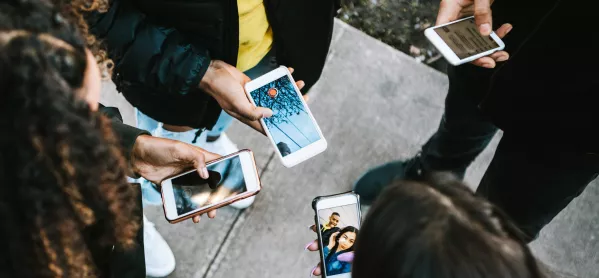We have the power to tackle racism on social media

Milton Keynes College decided to join football’s social media blackout this weekend in protest at the apparent free rein given to racism and racists on various platforms. Will it make the tiniest dent in the profits of Facebook or Twitter? Probably not. Can it be dismissed as just another piece of impotent virtue signalling? It can and already has been by a lot of people. Some have suggested that the sport should leave social media for a whole season, or even set up its own platforms where anonymity is not allowed, leaving racists exposed. But if those who oppose racism take themselves off to build their own digitally gated communities, won’t these just become echo chambers that change nothing in the world outside?
Perhaps the most important thing is that this protest doesn’t turn out to be a one-off. Who hasn’t lost count of the number of initiatives, protests and calls for action to combat the vile and overt nature of the racism casually uploaded to various platforms every day? How many times have the sites themselves issued declarations of intent without making any perceivable dent in the avalanche of abusive and unacceptable postings? This is why, rather than a single, defiant shot, this needs to be a starting pistol, the beginning of a global movement, and this is why we at the college believe we need to be part of it and not simply bystanders or cheerleaders.
From the magazine: Schools can protect pupils from social media scaremongering
FE Chatter: College restaurants, Covid tests and Labour
Opinion: What we need to do to improve diversity in colleges
The fact is, nothing that anyone says or does will dissuade those people with racist views from sharing them - anyone that is except the social media companies themselves. It would be wrong to say they completely ignore the problem. Instagram, for example, recently launched new tools to filter out abusive messaging, but the emphasis surely should be on them rather than us blocking objectionable comment. Similarly, users can report bad behaviour on Twitter, but too often the adjudication appears arbitrary and depends on users doing the bulk of the work - doing the companies’ work for them.
Tackling racism on social media
For too long social media has been allowed to throw up its collective hands at its own inability to limit racism. The platforms have hidden behind the mournful plea of, “We’re just the hosts - we can’t be responsible for what people say on here.” This is no longer acceptable. Facebook, Twitter et al have to be made to recognise their de facto position as publishers, with all the moral and legal responsibilities that entails. It can be done. Following action in Australia, Google and Facebook have fixed budgets of a billion dollars each over the next three years to pay for content posted from news outlets rather than scandalously continuing to use it for free. They didn’t want to do it but were forced into it. If we want to see them ending the cowardly anonymity currently available to racists and to take down racist comment speedily and with serious punishment for the perpetrators, we have to hit them in the pocket, and that means more boycotts and longer and more comprehensive ones.
Social media has great strengths. Its ability to connect us to each other is changing the world in many positive ways. Every day, wonderful causes that might have gone unnoticed are rocketed to prominence by the collective goodwill of people around the world who will never meet. Much has been said about the loneliness caused by lockdown. How much worse would that loneliness have been without these digital lifelines keeping us connected to a world beyond physical reach? As a force for channelling love, compassion and support, social media is unrivalled. And that word, “channelling” is important here; social media platforms are channels for our thoughts and beliefs, they possess no life of their own without us. We, the users, are the content, but we’re also the product. It’s our data, our frequent posts, our continued presence that makes the business model viable.
We need the people whose burgeoning wealth depends on your presence to understand that if they want us to keep using them they have to get their houses in order. If we go away and stay away often enough in protest at their failure to deal with racism against footballers and anyone else, they will eventually have to treat the issue with the seriousness it deserves.
Lee Parker is director of marketing and communications at Milton Keynes College
You need a Tes subscription to read this article
Subscribe now to read this article and get other subscriber-only content:
- Unlimited access to all Tes magazine content
- Exclusive subscriber-only stories
- Award-winning email newsletters
Already a subscriber? Log in
You need a subscription to read this article
Subscribe now to read this article and get other subscriber-only content, including:
- Unlimited access to all Tes magazine content
- Exclusive subscriber-only stories
- Award-winning email newsletters